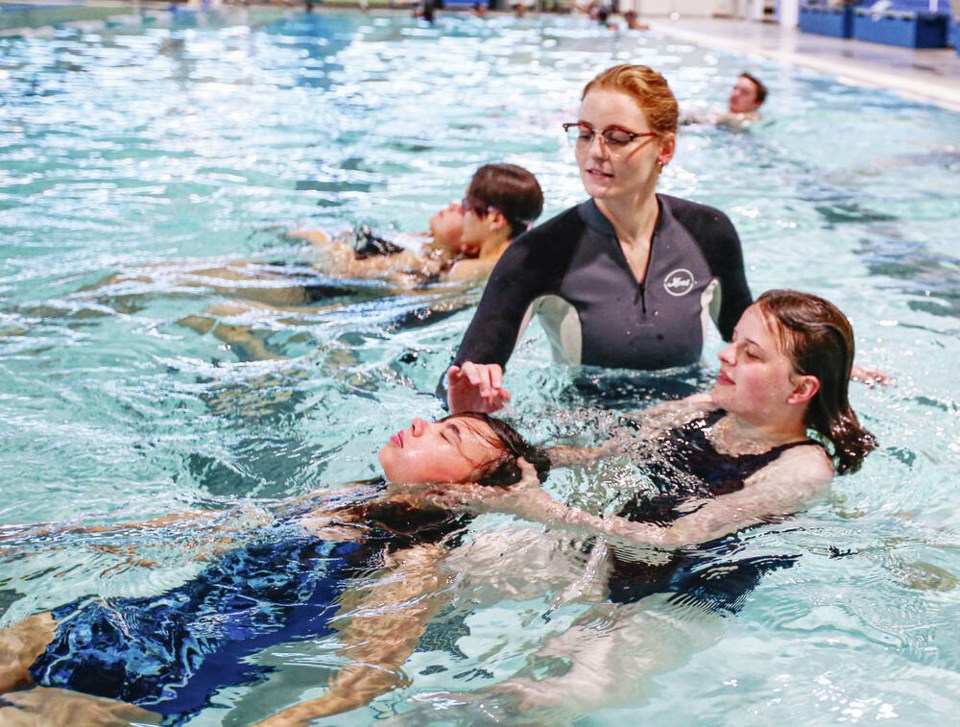Crystal Pool had to close its doors on the Sunday of the Thanksgiving long weekend due to a lack of certified lifeguards to ensure the safety of swimmers.
Jeff Brehaut, manager of recreational services with the City of Victoria, said the lifeguard shortage stemmed from a variety of factors, including staff holidays and illness, and the timing meant the impact was light.
But Brehaut said staffing shortages at the city-run pool are not unique — the issue is a regional and national one.
The problem stems from the COVID-19 pandemic, which curtailed training and certification opportunities due to a limited number of training hours, said Brehaut. The situation should ease as a new wave of applicants receives lifeguard certificates in the next six months, he said.
In the meantime, at the SEAPARC Leisure Complex in Sooke, staff shortages have meant limits on the number of patrons during public swims, midday pool closings during quieter hours and reduced hours on the weekends.
Despite offering in-house training, Salt Spring Island Recreation is still experiencing staff shortages in the aquatics department, and warns if that continues, service levels for aquatic programs could be reduced.
Educators at Esquimalt High School have turned the shortage into an advantage for students, offering a water-safety course that comes with physical education credits and can eventually lead to a lifeguard certificate.
The course includes two days at the school to learn the course materials and three days in the water at the Esquimalt Recreation Centre pool to practise.
“You don’t have to be a strong swimmer to qualify,” said Tina Pierik, principal at Esquimalt High School. “You just need to learn basic water safety.”
Typically, the cost of the qualifying water-safety courses runs into the hundreds of dollars, which the applicant must pay.
Students enrolled in the Esquimalt High School program, however, only need to come up with about $82 to cover the cost of the textbooks, although the school says it will find ways to pick up the bill for a student unable to pay the tab.
While it sounds like an easy ride, Pierik said she warns prospective students that it is hard work and there’s no slacking off.
The aquatic program at Esquimalt High School attracted 24 students in 2020, its first year, as well as in 2021. There is already a waitlist for next fall
At pools run by the Capital Regional District, youth who obtain their national lifeguard certification can be hired as lifeguards at the age of 15. At other pools, teens can only be hired as lifeguard assistants until they turn 16.
Under recent changes to the Employment Standards Act that took effect Oct. 15, aimed at protecting young workers, 14- and 15-year-olds are able to work as lifeguards or lifeguard assistants with permission from a parent or guardian.
Certified lifeguards can expect to easily find shifts at a number of area pools, which are recruiting and offer in-house training to attract and develop staff.
“Swimming is already a great life skill,” said Pierik.
“I tell students that being a lifeguard is a good-paying job — one that can take them right through university.”



